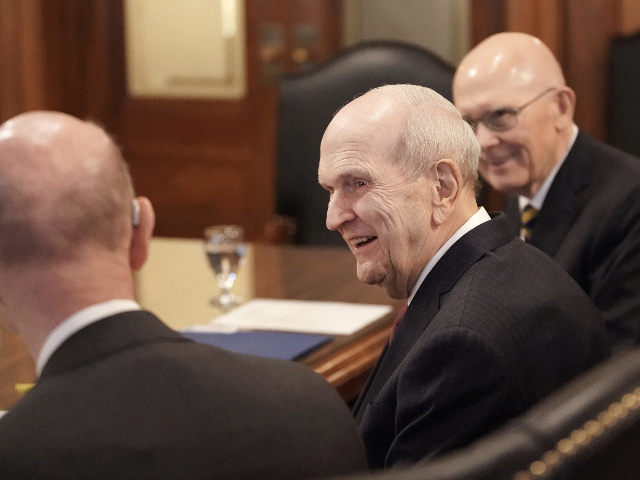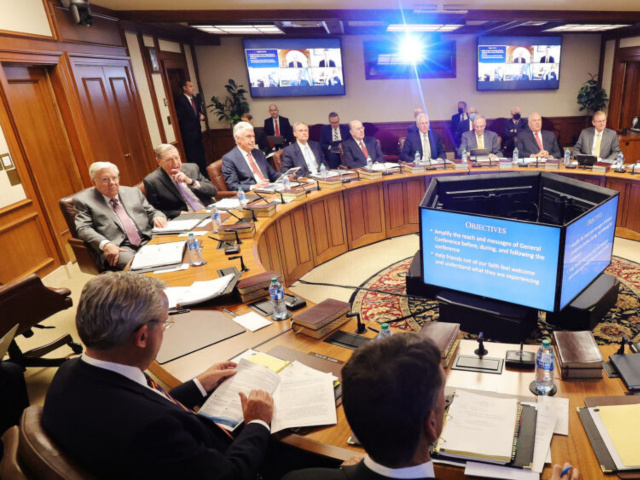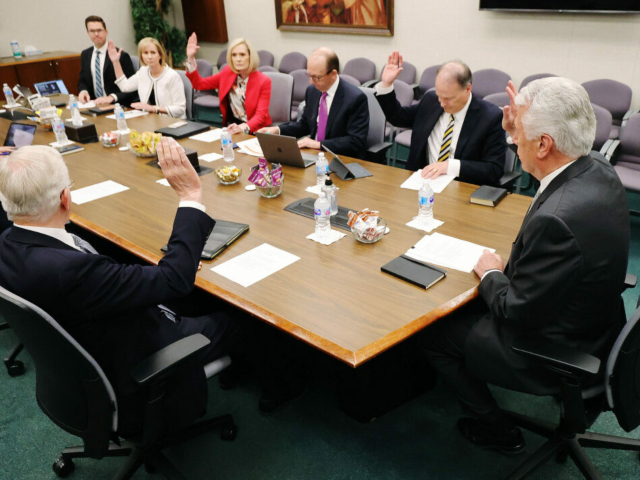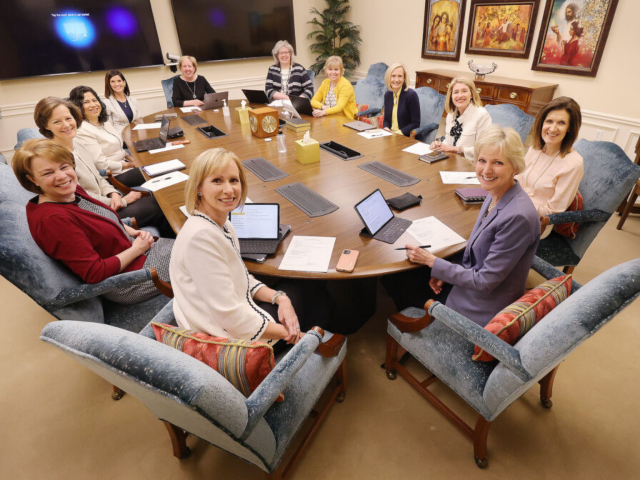- Church-Councils
- Church-Councils
- Church-Councils
- Church-Councils
- Church-councils
- Church-councils
- Church-councils
- Church-councils
- Church-councils
- Church-councils
- Church-councils
- Church-councils
- Church-council
- Church-councils
- Church-councils
- Church-councils
| Temple Square is always beautiful in the springtime. Gardeners work to prepare the ground for General Conference. © 2012 Intellectual Reserve, Inc. All rights reserved. | 1 / 2 |
This story appears here courtesy of TheChurchNews.com. It is not for use by other media.
By Sydney Walker and Sarah Jane Weaver, Church News.
Moments after participating in a morning meeting with the Council of the First Presidency, President Dallin H. Oaks leaned forward in his chair and shared a statement he has heard many times: “In the abundance of counsel, there is wisdom.”
Now first counselor in the First Presidency, President Oaks was called to the Quorum of the Twelve Apostles of The Church of Jesus Christ of Latter-day Saints in 1984. In his home and through service in ward, stake and general Church leadership, he has learned how the Lord organized His Church, why councils govern that organization and how “inviting, receiving and recognizing revelation” can happen in every council.
“Revelation is the ultimate objective of the council, either revelation in the council, revelation to participants or revelation to presiding officers,” President Oaks said.
Speaking of “stewardship in revelation,” he added that every act or ordinance performed in the Church is done under the direct or indirect authorization of one holding the keys for that function.

Church-Councils
President Russell M. Nelson of The Church of Jesus Christ of Latter-day Saints and his counselors, President Dallin H. Oaks, first counselor, and President Henry B. Eyring, second counselor, attend a First Presidency meeting, held daily Tuesday through Friday, at the Church Administration Building in Salt Lake City on Wednesday, June 16, 2021. The Church Administration Building was constructed between 1913 and 1917. Photo by Jeffrey D. Allred, courtesy of Church News.Copyright 2021 Deseret News Publishing Company.President Oaks and other Church leaders spoke to the Church News about councils and revelation for a four-part series titled “Inside Church Headquarters.” This week, the Church News features key summary points and a photo gallery from the series.
From the beginning, God has done His work through organized councils, said President M. Russell Ballard, Acting President of the Quorum of the Twelve Apostles. This divine pattern is “critical” to the Church’s organization at every level.
Young Women General President Bonnie H. Cordon said: “This is The Church of Jesus Christ of Latter-day Saints; it is a remarkable thing to remember that it is His Church. As we seek to know His will, as men and women come together, listening to each other and listening to the Spirit, revelation flows.”
The following is a breakdown of the four parts of the series and points from each.
What President Oaks and President Henry B. Eyring have learned about revelation in councils and from President Russell M. Nelson’s leadership:
- Invite input instead of forcing a decision.
- Unity comes from the Lord.
- The strength of councils comes from the faith of those in them.
Why the Church Is Governed by Councils:
- The Great Council in Heaven exemplifies the importance of councils.
- Councils and committees are organized under the direction of the First Presidency to direct specific aspects of the work of Jesus Christ on the earth.
- The council system safeguards the Church and its members from any one person trying to impose a particular point of view.
A look at Three of the Church’s Executive Councils and What They Do:
- The keys restored through Moses, Elias and Elijah in Doctrine and Covenants 110 are represented today in the Missionary Executive Council, Priesthood and Family Executive Council and Temple and Family History Executive Council.
- These councils make recommendations to the Council of the First Presidency and Quorum of the Twelve Apostles.
- Each is chaired by a member of the Quorum of the Twelve Apostles and includes a member of the Presidency of the Seventy and the Presiding Bishopric, as well as two general women officers.
Eight Principles to Help Stake, Ward and Family Councils Be More Effective:
- Understand stewardship: Leaders receive revelation for their own stewardships.
- Know your purpose: The primary mission of any council is to bring souls unto Christ.
- Invite the Spirit by preparing: Spiritual preparation helps foster a revelatory experience.
- Seek the Lord’s will, not your own: The Savior should be the center of every council.
- Make sure every voice is heard: Revelation is scattered among the various participants of the council.
- Seek women’s perspectives: Progress is made when men and women are unified and work together.
- Listen to learn: Be open to others’ ideas and actively listen, rather than waiting for a turn to speak.
- Seek consensus through revelation, not compromise: Once a decision is made, all move forward actively supporting it.
You can also find links to all articles, videos and podcast episodes related to the series at TheChurchNews.com/category/inside-church-headquarters.
Copyright 2021 Deseret News Publishing Company



